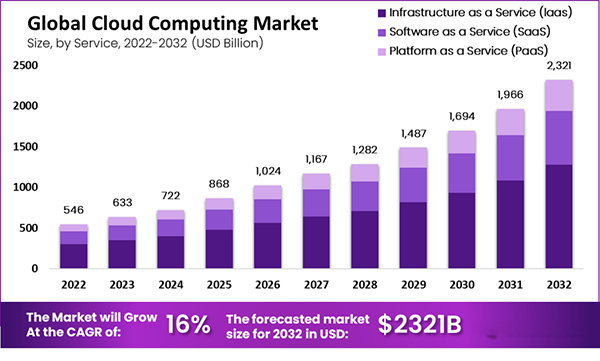In this ever-evolving technical world where growing digitally is not some fancy but a need of an hour, digital wallets have been revolutionizing the way we store and use our money.
And, according to the 2022 Global Payments Report, digital wallet payments account for about 52.5% of e-commerce transactions worldwide (which is a lot, by the way).
These stats clearly depict that more people have been turning towards digital payments to manage their funds. Also, learn about Is Edge Computing Right for You by reading this article.
So, this read will explore the major interplay between cloud computing and digital wallets and how it offers more enhanced convenience and connectivity in electronic transactions.
Cloud computing refers to delivering all the major computing services over the internet (The Cloud). These services might include the storage databases, servers, networking, software, and analytics, etc.
And, when it comes to digital payments, cloud computing comes into play as a cost-effective approach to managing all of your funds without a significant upfront investment in physical infrastructure.
Digital wallets are often considered based on their seamless user experience and overall convenience. And, this is right where cloud computing comes into plays with high-speed processing capabilities, which ensures that your transactions are going to be smooth and efficient.
Additionally, cloud computing offers some advanced security features such as high encryption, identity, and access management along with continuous monitoring. This ensures that the user’s data stays safe on the platform to prevent any kind of online scam.

Digital wallets contain a large amount of data, from transaction records, and users profile to overall financial analytics. And, this is probably why storing and managing of these data becomes crucial to ensure smooth and quick access.
Cloud computing offers some advanced data storage solutions to efficiently organize, analyze, and retrieve data. These robust solutions also help in scaling the overall growth of digital wallets, while ensuring optimal performance and compliance.
Do You Know?
Some estimations indicate that the digital payment industry will reach around 11.95 trillion U.S. dollars by the year 2025.
Crypto custody solutions, which are responsible for the secure storage and management of digital assets, also benefit from cloud computing. Here’s how cloud infrastructure supports efficient data management in crypto custody solutions:
While cloud computing offers a range of benefits in the efficiency of digital wallet transactions, but still there are some considerations to keep in mind.
Cloud computing is yet to reach its full potential and its integration with digital wallet transactions is still in its emerging stage. So, as cloud technologies advance, we can expect more and more innovative solutions in this field. Here’s a little glimpse of some potential future developments.

In closing, implementing cloud computing solutions in digital wallet transactions is revolutionizing the way we use and manage our funds. And, by leveraging these robust solutions, businesses can ensure scalable, secure, and high-performing digital wallet transactions.

Thanks for choosing to leave a comment. Please keep in mind that all comments are moderated according to our comment Policy.